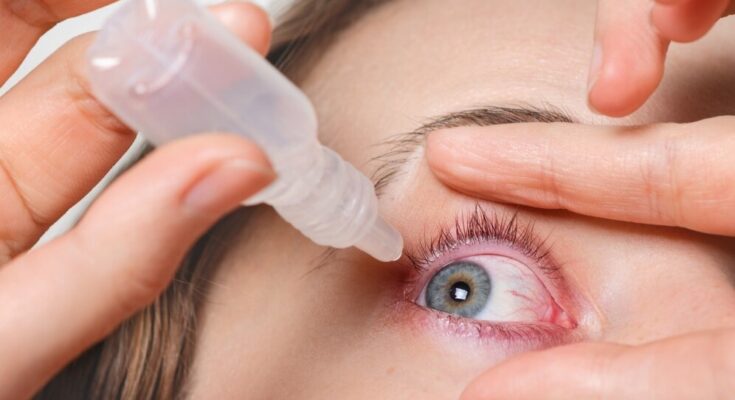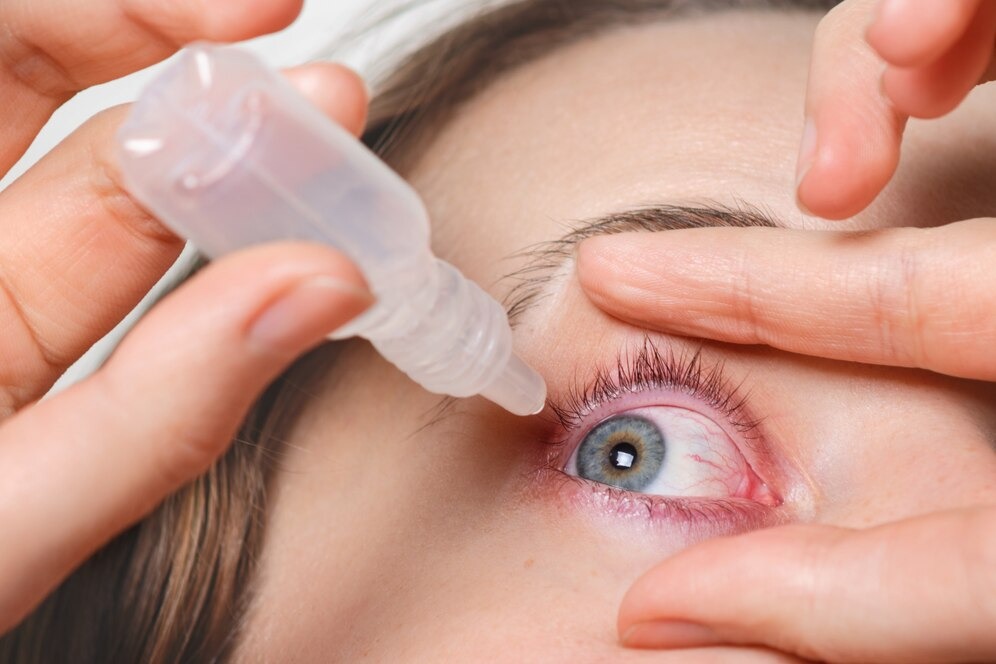
SB.. The Essentials of Eye Health: How to Prevent Infections
Our eyes are crucial sensory organs that allow us to perceive and navigate the world around us. Maintaining eye health is essential for preserving good vision and preventing infections that can compromise eye function. Eye infections can be caused by various factors, including bacteria, viruses, allergens, and improper eye care practices. In this article, we will discuss key strategies for preventing eye infections and ensuring long-term eye health.
Causes of Eye Infections
Eye infections can be triggered by numerous factors, including:
- Bacterial Infections: Bacteria can cause common eye infections such as conjunctivitis (pink eye), blepharitis, and corneal ulcers. These infections are often spread through direct contact with contaminated hands, objects, or surfaces.
- Viral Infections: Viruses like the herpes simplex virus can lead to eye infections, causing painful conditions such as viral conjunctivitis or keratitis.
- Allergic Reactions: Environmental allergens such as pollen, pet dander, or dust mites can lead to allergic conjunctivitis, which causes redness, itching, and discomfort in the eyes.
- Negligence in Eye Care: Poor hygiene, improper use of contact lenses, and sharing eye products can introduce harmful microorganisms to the eyes, leading to infections.
Understanding these potential causes is crucial in implementing effective prevention measures.

1. Wash Your Hands Frequently
One of the most effective ways to prevent eye infections is to maintain proper hand hygiene. Our hands come into contact with various surfaces throughout the day, many of which are home to bacteria, viruses, and other harmful microorganisms. By washing your hands regularly with soap and water, you can eliminate germs that could potentially harm your eyes.
How to Properly Wash Your Hands:
- Wet your hands with clean, running water.
- Apply soap and lather well, making sure to scrub all surfaces of your hands, including the back of your hands, between your fingers, and under your nails.
- Rinse thoroughly with clean water and dry with a clean towel or air dryer.
Washing your hands before touching your eyes or handling contact lenses significantly reduces the risk of introducing harmful pathogens into your eyes.
2. Avoid Touching Your Eyes
Your hands are constantly exposed to germs, and touching your eyes can transfer these germs directly into your sensitive eye area. Avoid unnecessary touching, rubbing, or scratching of your eyes, as this can introduce bacteria, viruses, or irritants that may lead to infections. If you must touch your eyes, ensure that your hands are thoroughly cleaned beforehand.
Why Avoid Touching Your Eyes?
- The surface of your hands can carry dirt, oil, and microorganisms that can cause infections when they come in contact with the delicate tissues of the eye.
- Constant rubbing or touching of the eyes can also lead to inflammation or worsen pre-existing conditions like dry eye or allergic reactions.
If you feel an itch or irritation, consider using a clean tissue to gently wipe your eyes rather than using your fingers.

3. Contact Lens Care Procedures
For those who wear contact lenses, maintaining proper hygiene is vital to reducing the risk of eye infections. Contact lenses, if not properly cleaned and maintained, can harbor bacteria and other microorganisms that could cause severe infections.
Key Tips for Contact Lens Care:
- Clean and disinfect lenses regularly: Always follow the cleaning instructions provided by your eye care professional. Use a disinfectant solution specifically designed for contact lenses to clean them after each use.
- Replace lenses as instructed: Whether you wear daily, bi-weekly, or monthly lenses, make sure to replace them at the recommended intervals. Using lenses beyond their lifespan increases the risk of infection.
- Never sleep with your lenses in: Unless advised by your eye doctor, avoid wearing your contact lenses overnight. Sleeping with contact lenses in can reduce oxygen flow to your eyes and increase the likelihood of bacterial growth on the lenses.
By adhering to these care practices, you can significantly reduce the chances of developing eye infections due to contact lens use.
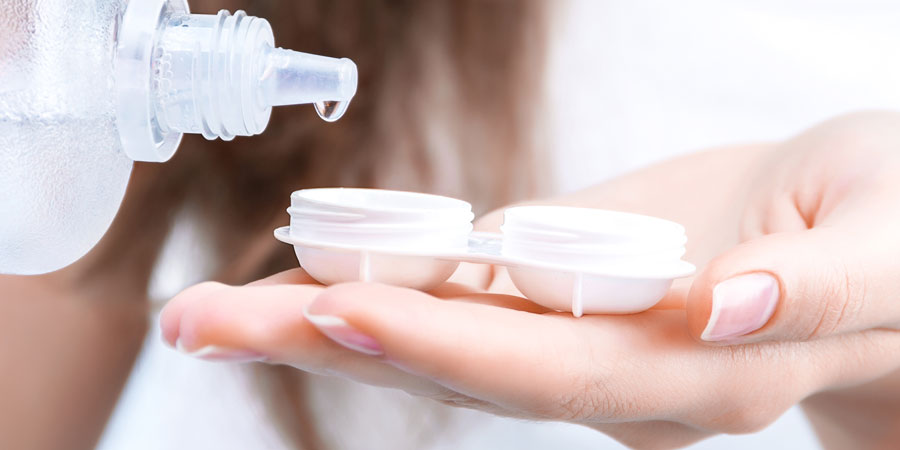
4. Clean and Sanitize Eyewear Regularly
Whether you wear prescription glasses or sunglasses, keeping them clean is essential for preventing eye infections. Over time, dust, oils, bacteria, and debris can accumulate on the lenses and frames, potentially transferring harmful substances to your eyes.
How to Clean Your Glasses:
- Use a soft microfiber cloth to wipe the lenses.
- Clean the frames with a gentle cleanser or mild soap and water to remove dirt and bacteria.
- Avoid using harsh chemicals or rough materials that can scratch the lenses.
Regular cleaning of your glasses or sunglasses helps ensure that harmful particles don’t come into contact with your eyes, reducing the risk of irritation or infection.
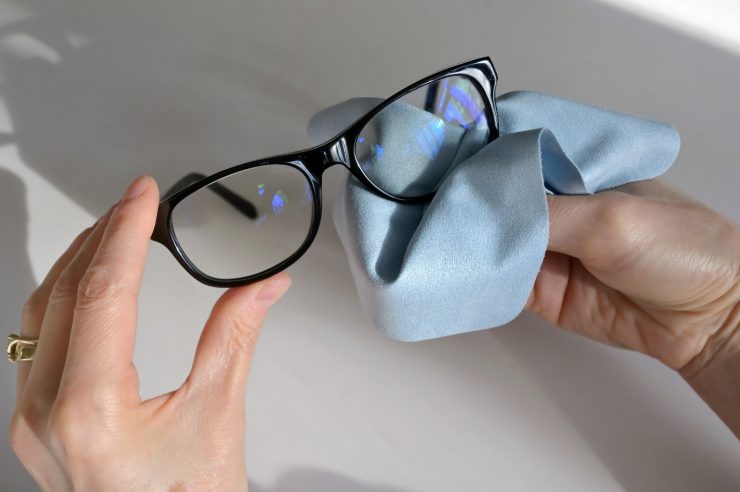
5. Keep Eye Makeup Private and Clean
Sharing eye makeup with others can increase the risk of transferring bacteria and viruses, leading to eye infections. It’s important to keep your eye makeup personal and ensure that your makeup tools, such as brushes and applicators, are clean.
Key Tips for Eye Makeup Hygiene:
- Don’t share eye makeup: Avoid borrowing or lending items like mascara, eyeliner, or eyeshadow with others.
- Replace makeup regularly: Eye makeup products can harbor bacteria over time, so it’s essential to replace them regularly. Typically, mascara should be replaced every three months to prevent contamination.
- Clean makeup tools: Wash your makeup brushes and applicators regularly to prevent the buildup of harmful microorganisms.
By following these tips, you can avoid introducing bacteria or other pathogens into your eyes, which can lead to painful and potentially serious infections.
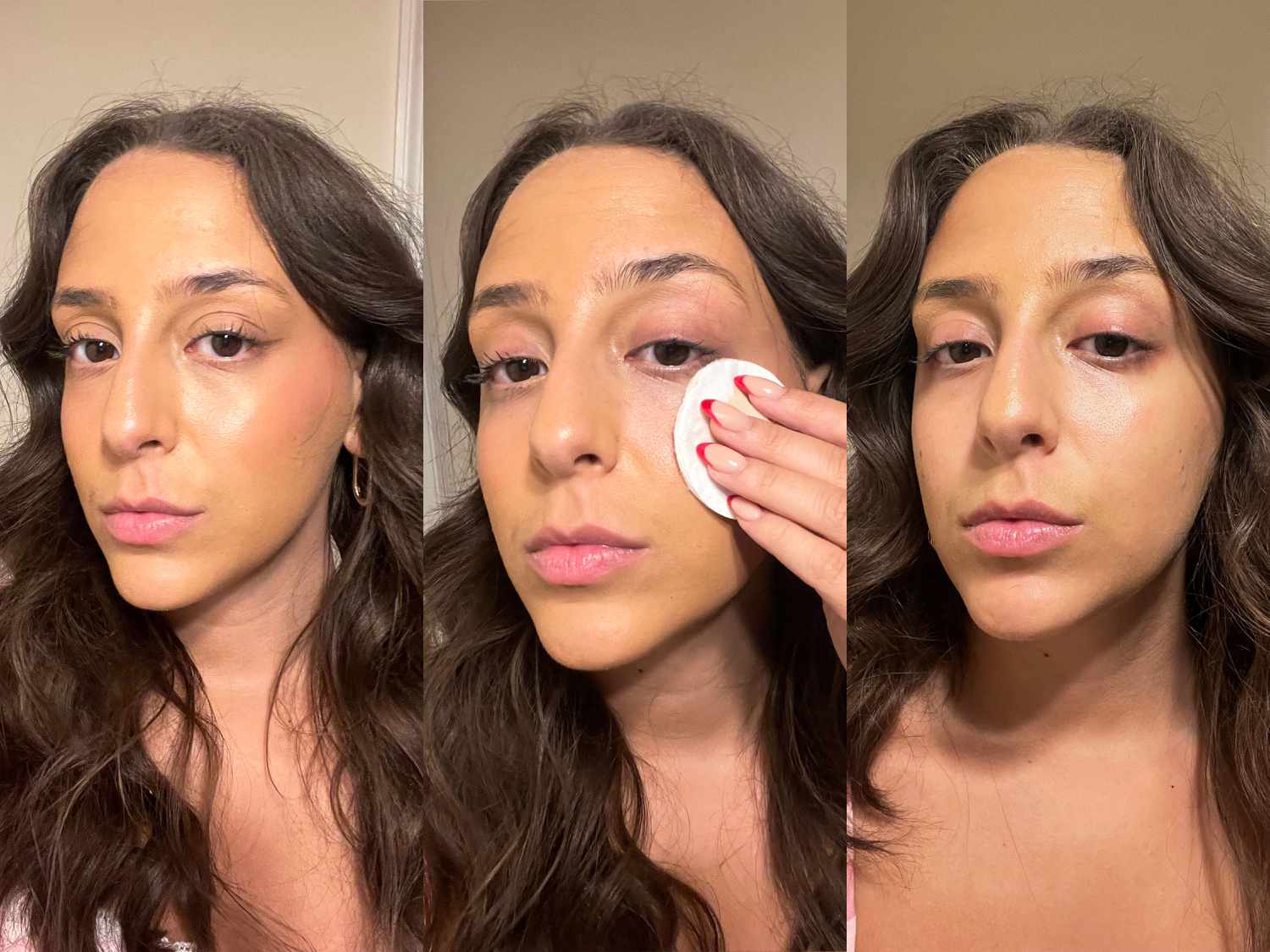
6. Protect Your Eyes in Polluted Environments
Air pollution, including smoke, dust, and chemical fumes, can irritate the eyes and lead to various conditions such as dry eye or allergic conjunctivitis. In areas with high levels of pollution, it’s essential to protect your eyes from potential damage.
How to Protect Your Eyes:
- Wear protective eyewear or goggles: When exposed to smoke, dust, or chemicals, protect your eyes by wearing appropriate eyewear.
- Limit outdoor exposure during high pollution levels: Check air quality indices and try to stay indoors on days when pollution levels are high.
Taking these precautions can help prevent environmental factors from causing eye irritation or infection.

7. Schedule Regular Eye Exams
Routine eye exams are crucial for maintaining long-term eye health and preventing infections. Regular checkups with an eye care professional can help detect potential problems early, allowing for prompt treatment and better management of any conditions that may arise.
Benefits of Regular Eye Exams:
- Early detection of infections: Eye exams can identify infections or other conditions before they become more serious.
- Preserving vision: Regular eye exams help ensure that your vision is healthy and that you are taking the necessary steps to protect it.
Be sure to visit your eye doctor regularly to maintain optimal eye health and address any concerns as soon as they arise.

Conclusion
Preventing eye infections requires a combination of good hygiene practices, careful handling of eye care products, and protecting your eyes from environmental irritants. By washing your hands frequently, avoiding unnecessary eye contact, maintaining proper contact lens hygiene, and protecting your eyes from pollution, you can significantly reduce the risk of infections. Regular eye exams and a healthy lifestyle further contribute to maintaining long-term eye health. Prioritize your eye health today to ensure clear, infection-free vision for years to come.
Sources:
- American Academy of Ophthalmology (AAO)
- Centers for Disease Control and Prevention (CDC)
- National Eye Institute (NEI)
- American Optometric Association (AOA)
